- All
- [Open Science Policies]
- Auvergne-Rhône-Alpes
- Bourgogne-Franche-Comté
- Brittany
- Centre-Val de Loire
- Corsica
- DROM-COM
- Grand Est
- Hauts-de-France
- Île-de-France
- Normandy
- Nouvelle-Aquitaine
- Occitania
- Pays de la Loire
- Provence-Alpes-Côte D'Azur
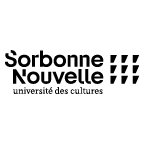
Université Sorbonne Nouvelle
Founded in 1970, Université Sorbonne Nouvelle stems from the former Litterature faculty of University of Paris.
At the heart of Latin Quarter, and through Paris 5th arrondissement, Sorbonne Nouvelle offers several multidisciplinary high level education in Languages, Litterature, Arts and Media, Humanities and Social Sciences.
These trainings offer a variety of job prospects: teaching, research, publishing, resource management, performing arts (comedy, cinema, audiovisual), communication, journalism, coordination of cultural projects, translation and interpretation, in Europe or worldwide. Education at Sorbonne Nouvelle also relies on reputed research in modern humanities.
HAL portal
Open Science policy
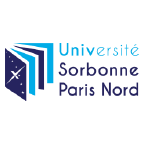
Sorbonne Paris Nord University
Paris University 13 is one of the thirteen universities that were created after the reorganization of the old Sorbonne after 1968.
It now has 24,000 students, spread across five campuses pursuing degrees or continuing education.
Truly multi-disciplinary in nature, Paris University 13 is a major center of teaching and research in the north of Paris.
The fundamental mission of Paris University 13 is to improve the scientific, cultural and professional knowledge of all through initial and continuing education and the development of research, which is its essential foundation.
In accordance with this mission, Paris University 13 pursues the following objectives :
- To welcome, inform and guide the choices of its students and provide them with initial and/or continuing education, particularly so that they obtain degrees.
- To develop research in science and technology as well as spread and extract value from findings
- To support students in their choice of courses and their entry into working life
- To support all desirable form of relations within the regional environment
- To enrich the culture and the scientific and technical knowledge of the academic community and the regional population
- To promote cooperation with other universities both nationally and internationally, particularly by participating in the European Higher Education Area
HAL portal
Open Science Policy
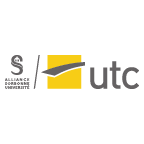
Université de technologie de Compiègne
UTC, a public institution with a scientific, cultural and professional nature, was born in 1972, as an experimental technology university.
Be it about education, research, international perspective or interaction with companies, UTC regularly ranks at the top of engineering schools.
HAL portal
Open Science Policy
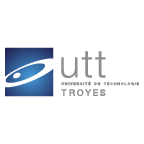
Université de technologie de Troyes
Research, education and technology transfer are the core missions of Université de technologie de Troyes (UTT). Au public institution established in Troyes in 1994, UTT now ranks among the 10 most recognized engineers schools in France.
Each year, it trains over 3.100 students, issuing master’s degrees and doctorates.
Both a university and a Grande école, UTT relies on 8 research teams to offer education embracing the whole higher education scope: bachelor’s degree, master’s degree, engineer’s degree, doctorate, short and professionalising trainings, specialised graduate degrees, APEL, language certifications.
The trainings offered match companies’ expectations.
The 5-year engineer studies is customised from the very start, enabling each student to match his education to his career objectives.
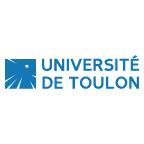
University of Toulon
Founded in 1968 and independently managed since January 1st 2012, the University of Toulon (UTLN) places the University’s attractiveness at the core of its long-term strategic plan.
Well-established throughout the region, the University of Toulon works closely with the region’s social and economic institutions to tailor its academic programmes and research activities to their needs.
The University of Toulon is an interdisciplinary institution with 3 campuses. The University offers a hundred different degrees (excluding medical school) and operates 15 Research Units.
The University of Toulon offers a hundred different degrees in the following fields :
- Art, Literature and Languages (ALL)
- Law, Economics and Management (DEG)
- Humanities and Social Sciences (SHS)
- Sciences, Technology and Health (STS)
The University of Toulon is proud of the quality of its academic programmes and the support from the Department of Academics and Student Life (DEVE) and the Department of Continuing Education (FTLV).
Each Faculty has its own Academic and Development Committee to ensure the quality and attractiveness of its degree programmes.
Research is a fundamental element of French universities. The University of Toulon has nearly 300 professors/researchers and 15 dynamic and internationally recognized Research Units.
The University’s Research Units regularly organise and participate in seminars and symposiums and actively publish their research.
Having a wide range of research programmes is a valuable asset which facilitates an interdisciplinary approach. The three main areas of research at the University of Toulon are :
- Sea, Environment, and Sustainable Development
- Information
- Comparative Euro-Mediterranean Civilisations and Societies
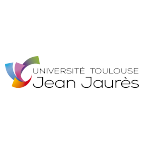
University Toulouse – Jean Jaurès
Founded in 1229, the University earned a great reputation in the 16th century hosting prestigious humanist thinkers such as Rabelais, Michel Servet, Etienne Dolet, Michel de l’Hospital and Montaigne.
In 1808, the institution became an imperial University and consisted of the Faculties of Catholic and Protestant Theology, the Faculty of Humanities, the Faculty of Law, of Sciences, and a School of Medicine.
Reaching its full development in the 20th century, the Faculty of Humanities is transferred in 1968 from the centre of Toulouse to its current location, the newly-built Mirail district which gave its name to the campus.
HAL Portal
Open Science policy
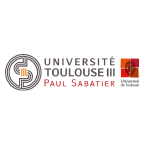
University Toulouse 3 Paul Sabatier
The name of the University Toulouse 3 is a tribute to Paul Sabatier, a scientist born in Carcassonne in 1854. Winner of the 1912 Chemistry Nobel Prize, Paul Sabatier was the dean of the faculty of sciences in Toulouse, and a member of the Académie des sciences. Under the aegis of this scholar, University Toulouse 3 Paul Sabatier is proud to train over 35.000 students and to host 64 research labs.
University Toulouse 3 Paul Sabatier’s roots go back to the 13th century; however, its birth occurs in 1969, when the faculty of Medicine, the faculty of Pharmacy, and the faculty of Sciences merge. The diversity of its laboratories and the quality of the training in sciences, health, sports, technologies and engineering are responsible for the University’s standing in the last 50 years, and rank it among the top universities in the world. It is among the 300 best establishments for scientific performances in the international ranking of National University of Taïwan (NTU ranking).
Read more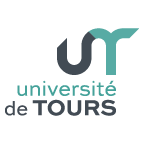
University of Tours
Multidisciplinary (Arts & Humanities, Law, Economics & Social Sciences, Literature & Languages, Medicine, Sciences & Technology, 2 Institutes of Technology (IUT), 1 Centre for Advanced Renaissance Studies, 1 Graduate School of Engineering), the University is located in the heart of Tours but also in Blois.
With over 36 research laboratories, it is the leading public research institution in the Centre Val de Loire region.
It is distinguished by the richness of its culture, with a theatre with nearly 600 seats and a student cultural passport giving access to more than 65 regional cultural activities and events at special rates!
HAL portal
Open Science Policy
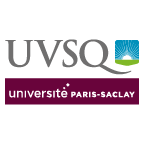
Université de Versailles Saint-Quentin-en-Yvelines
University of Versailles Saint-Quentin-en-Yvelines (UVSQ) is a leading multidisciplinary higher education and research institution. The quality of UVSQ’s undergraduate and graduate programs (master’s programs, doctorates, post-doctoral fellowships) is backed by the compelling research programs conducted in UVSQ research centers and laboratories.
UVSQ is a medium size university (20 000 students) located in the Southwestern suburb of Paris, where internationally known businesses are established (such as Renault, PSA, Dassault…) as well as renowned French research institutes (CNRS, INRA, CEA…).
Spread over 5 campuses with 19,000 students, UVSQ offers more than 200 disciplinary programs which allow it to welcome international students interested in studying in France for a semester, an academic year, or the full duration of a degree program. UVSQ faculties offer academic and professionally-focused undergraduate and graduate programs in many fields of study such as:
- Law,
- Political science,
- History,
- Geography,
- Economics,
- Management,
- Media and cultural studies,
- French Language,
- Medicine and Health,
- Biology,
- Chemistry,
- Physics,
- Mathematics, etc.
About 12% of UVSQ students are in apprenticeship training degrees which creates a solid bond with the economic environment and maintains the strength of the industrial sector partnership of the University. UVSQ also develops strong international cooperations with 120 universities throughout the world.
Ranked 12th in the French university of the 2019 World University ranking THE and 2nd in the 2018 Shanghai ranking in Atmospheric Sciences, the UVSQ places pedagogical innovation, professionalization and internationalization of its programs at the heart of its strategy.
The excellence of UVSQ as a research university is assured by its 39 laboratories and research institutions and is locally, nationally and internationally recognized as a source of expertise and resources. Heritage, materials, climate, environment, space science, public health, epidemiology, and disability are all fields in which UVSQ has become a major player, both within research networks and beyond.
These laboratories foster innovative, cross-disciplinary research that anticipates societal concerns, informs citizens and advice decision-makers.
UVSQ’s research laboratories are grouped into doctoral schools for the teaching and research supervision of PhD students.
UVSQ has strong links with the Department of Justice and university hospital centers (CHU), prestigious French research organizations such as CNRS, CEA, INSERM, INRA, INRIA, ONERA and with other French universities through its Joint Research Units (UMR in French).
UVSQ bases its research policy on 8 major lines of research:
- Climate, environment and sustainable development
- Culture and heritage
- Inflammation, infection, cancer and environment
- Public health: epidemiology, aging and cohort studies
- Disability
- Institutions, organizations and public policy
- Innovative materials: from concepts to applications
- Modeling and simulation of complex systems
The university participates in twenty state-funded “Investment for the Future” programs of the French government. With a dozen technology platforms, five industrial research chairs and participation in six competitiveness clusters, UVSQ actively cultivates projects with high potential for knowledge and technology transfer with industry partners in strategic sectors of the French economy.
USVQ campuses are located in exceptional natural, historical and cultural settings close to Paris.
The science campus is located in the city of Versailles, near the Palace of Versailles and many historical sites. Saint-Quentin-en-Yvelines that houses the humanities, law and health campuses, stands out for its parks and vibrant cultural life. Each campus has its own library, dining center and plenty of student accommodations nearby.
Choosing to study at UVSQ means choosing a university on a human scale. Joining UVSQ, you will have the opportunity to enjoy a campus life full of energy.
UVSQ also values all talents by offering programs outside the student curriculum (free EU). In addition to the main academic disciplines, students have the opportunity to participate in an artistic, sporting, social or associative EU valued by ECTS in order to develop new skills or simply to perfect their general knowledge.
UVSQ is a founding member of the world-class academic research cluster Université Paris-Saclay, which is a consortium of outstanding higher education and research institutions, constituting the largest research hub in France.
The institutions of the consortium Université Paris-Saclay share more and more of their educational and research activities: since 2015/2016, the entire doctoral training offer and most courses in master studies are pooled with other partners of the consortium, which increases the conditions for internationalization of these Programs.
HAL portal
Open Science Policy

VetAgro Sup
VetAgro Sup is an institution of higher education and research (ESR) under the aegis of the French Ministry of Agriculture and Food. It is the only establishment in France that trains veterinarians, agricultural engineers, and veterinary public health inspectors. It also runs educational and research programmes centred on the essential theme of global health, addressing issues at the intersection of human, animal, and environmental health.
VetAgro Sup has strong academic ties. It has officially partnered with the University of Lyon and the University of Clermont Auvergne and Associates, which were classified as IDEX and I-Site establishments, respectively, in 2017.
VetAgro Sup possesses expertise that it parlays into support for major economic players at the national, European, and international level. It specialises in the domains of food, animal health, the agricultural sciences, and the environmental sciences.
Read more